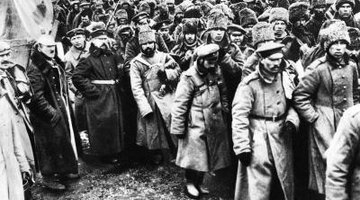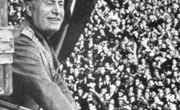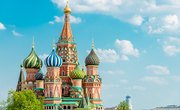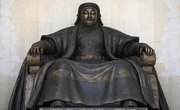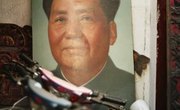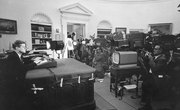World War I began in 1914 when Austria-Hungary declared war on Serbia over the assassination of Austrian Archduke Franz Ferdinand. Germany counted Austria as its closest ally. When Russia entered the war to protect its Slavic interests and maintain its reputation as a world power, Germany declared war on Russia. When World War I began, Russia was ruled by Czar Nicholas II. He planned to lead the Russian army to victory. Unfortunately, events did not go as planned and the Russian losses led to unrest among the citizens.
Losing the War
Russia started the war with the word's largest army: approximately 5 million soldiers once they were fully mobilized. The czar wanted to lead his men into battle, having a somewhat romantic notion of the Russians swooping in with their vast numbers and crushing the enemy. Unfortunately, though things started out well, a lack of equipment and poor military leadership soon led to many losses, sometimes of entire battalions in a single battle. And with the czar involved in the war, though he did not end up leading the charge at the front, there was little leadership at home.
Popular Unrest
The Russian people were already discontented with a system of rule that led to a wealthy royal family and poor citizens. A previous revolution in 1905 had forced Nicholas to offer his people civil rights and to share power with a parliament. But popular unrest continued, and was only exacerbated by the war, which had caused widespread hunger and the deaths of over 1 million soldiers and almost 3 million civilians.
Bolsheviks
The radical Bolsheviks, led by Vladimir Lenin, took advantage of the absence of the czar and the unrest to spread their communist, anti-war political message. Many soldiers deserted the army to join the Bolsheviks, adding to the army's difficulties. A revolution in March 1917 forced Nicholas to abdicate the throne in favor of a provisional government that promised the Russian people a more democratic political system, but aimed to continue the war.
The Road to Civil War
Having weakened the Russian army's ability to fight, the Bolsheviks took power in a coup in November 1917 and declared a cease-fire in December. Russia lost large amounts of territory in the resulting peace with Germany and its allies. The Bolshevik takeover did not please everyone in Russia. Some factions supported the Bolsheviks, but there were many others who either still supported czarist rule or wanted fulfillment of the provisional government's promised democracy. These opposing ideas led to a civil war that lasted from 1918 to 1921, and was in many ways harder on the Russian people than World War I had been.
Related Articles
References
- History Learning Site: Russia and World War One
- History Learning Site: The Russian Civil War
- BBC History: War and Revolution in Russia 1914 - 1921
- The Oxford Illustrated History of Modern War: "Total War I: The Great War" by John Bourne
- Encyclopedia of Marxism: WWI -- Russia
- History: World War I
- Country Studies: Revolutions and Civil War
Writer Bio
Jill Kokemuller has been writing since 2010, with work published in the "Daily Gate City." She spent six years working in a private boarding school, where her focus was English, algebra and geometry. Kokemuller is an authorized substitute teacher and holds a Bachelor of Arts in English from the University of Iowa.

